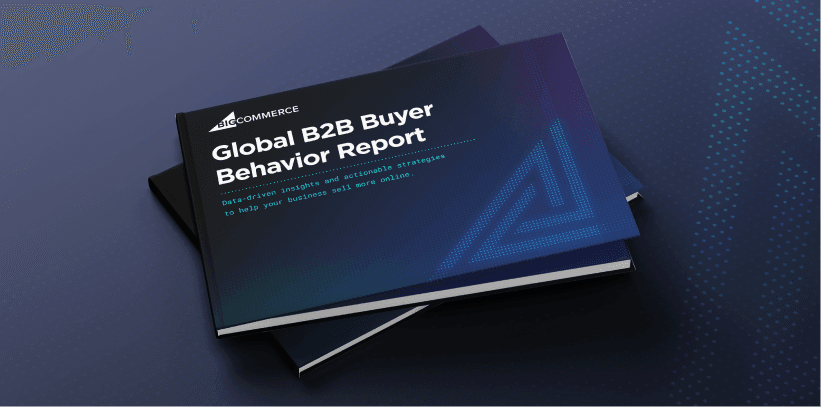EU 2022 VAT Changes for Ecommerce Businesses

This material does not constitute legal, tax, accounting, or other professional advice and is only for general informational purposes. Readers should consult a qualified professional to obtain advice for their own circumstances and supply chain.
On 1 July 2021, the 27 member states of the European Union (EU) will be making changes to value-added tax (VAT) obligations. The changes will affect businesses that sell goods from one EU country to another (known as distance selling) as well as businesses that sell goods which are imported from a non-EU country and delivered to an EU shopper. There are also changes to the rules for business to consumer services.
The changes aim to simplify tax filing for all merchants selling within and to the EU, as well as assist EU businesses in competing on equal footing with non-EU businesses who may not currently charge VAT. This article provides an overview of the changes coming for EU and non-EU merchants selling to shoppers in the EU.
1. Changes for Intra-EU Distance Selling
These changes are applicable to merchants with existing stock in the EU which are sold cross-border from one EU country to another (for example: selling goods located in France to a shopper in Germany). Specifically, the changes are in relation to:
1.1 Withdrawal of distance selling thresholds
1.2 Introduction of One Stop Shop (OSS) filing
1.3 Introduction of EU-wide threshold for micro-businesses
1.1 Withdrawal of distance selling thresholds
Until 30 June 2021, the EU distance selling thresholds are as follows:
€100,000 per annum: Germany; the Netherlands; Luxembourg; Northern Ireland which is still in the EU VAT regime (£70,000)
For other countries of the EU, it is €35,000 per annum or local currency equivalent
From 1 July 2021, the EU distance selling thresholds will be replaced by an EU-wide distance selling of threshold of €10,000. This means from 1 July 2021, merchants selling intra-EU cross-border, must charge VAT at the rate applicable in the shopper’s EU country of residence from the very first sale if their total cross-border sales across the EU exceed €10,000. Merchants will need to report these sales to the appropriate foreign tax authority unless exempt (see section 1.3).
To coincide and assist with the above change, the EU is introducing One Stop Shop (OSS) filing which provides a new way to file VAT returns for ecommerce merchants engaged in intra-EU cross-border sales (see section 1.2).
1.2 Introduction of One Stop Shop (OSS) filing
From 1 July 2021, merchants in the EU will be able to file a simplified EU VAT return, called the One Stop Shop (OSS), to assist with reporting their intra-EU cross-border sales to multiple EU countries. Merchants do not need to be registered for VAT in the EU countries that are included in their OSS filing, so long as those included are not their home EU country or an EU country where they have a physical location or hold inventory.
Merchants will be required to submit an electronic OSS filing using their domestic OSS portal on a quarterly basis, as well as keep a record of all reported sales for at least 10 years.
For the EU countries where the merchant has a physical location or holds inventory, such as in a warehouse, merchants may need to be VAT registered and file a domestic VAT return in each country.
OSS minimizes the overhead of registering for VAT in every EU country where intra-EU cross-border sales occur and simplifies the tax filing process by consolidating all relevant intra-EU sales to one OSS filing.
1.3 Introduction of EU-wide threshold for micro-businesses
Merchants with less than €10,000 per annum in intra-EU cross-border sales of B2C goods and services will be exempt from the obligation of completing an OSS return. Instead, eligible merchants will be allowed to charge their domestic VAT rate and report the sales below this threshold within their domestic VAT return.
2. Changes for Non-EU Merchants Exporting Goods to Shoppers in the EU
These changes are applicable to non-EU merchants that are selling cross-border from a non-EU country to an EU country (for example: selling goods from Australia to a shopper in Italy). Specifically the changes are in relation to:
2.1 Withdrawal of VAT exemption threshold for low-value consignment imports
2.2 New €150 VAT cap for imports to use new simplified filing
2.3 Import One Stop Shop (IOSS) filing
2.1 Withdrawal of VAT exemption threshold for low-value consignment imports
From 1 July 2021, the current VAT exemption for goods in low-value consignments (up to the value of €22) imported for delivery to shoppers in the EU, will be withdrawn. This means, merchants currently taking advantage of this existing VAT exemption will need to understand and prepare for any new schemes that are applicable from 1 July 2021 (see section 2.2).
2.2 New €150 VAT cap for imports to use new simplified filing
From 1 July 2021, VAT on importing goods into the EU can be paid under an optional simplified regime where the goods are part of a consignment of an intrinsic value not exceeding €150 and the goods are imported from non-EU countries for delivery to shoppers in EU countries.
The €150 intrinsic value is essentially the price of the goods excluding VAT, transport and insurance costs if separately itemized, and any other taxes or charges. If the intrinsic value of the goods in the consignment is €150 or less, merchants will still be required to collect VAT on separately itemized transport/insurance costs. For example:
Price of the goods as indicated in the invoice: €140
Transport charges as indicated in the invoice: €20
VAT (20%) as indicated in the invoice: €32
Total invoice amount: €192
Merchants with consignments meeting the above criteria can choose from one of the following approaches:
2.2.1 Collect the equivalent import VAT at point-of-sale and report and pay the VAT collected to the EU on a monthly basis through the IOSS filing
2.2.2 Merchant pays the import VAT or DDP (Delivery Duty Paid)
2.2.3 Shopper pays the import VAT or DDU (Delivery Duty Unpaid)
2.2.1 Collect the equivalent import VAT at point-of-sale and report the VAT collected to the EU on a monthly basis
To assist ecommerce merchants that choose to take this approach, the EU is introducing the Import On Stop Shop (IOSS) filing, a new way to file VAT returns for ecommerce merchants engaged in cross-border sales from non-EU countries to EU countries (see section 2.3).
2.2.2 Merchant pays the import VAT or DDP (Delivery Duty Paid)
Merchants that opt to pay the import VAT at the time of import, which is also known as DDP (Delivery Duty Paid), can work with their shipping provider to have the shipping carrier bill for the import VAT on a per shipment basis.
This approach streamlines the sales process and minimizes unexpected costs on the shopper, which can result in negative feedback and returns. BigCommerce is partnered with a number of cross-border solutions which can offer this service, including; Global-E and Zonos.
2.2.3 Shopper pays the import VAT or DDU (Delivery Duty Unpaid)
Merchants can also opt for the shopper to pay the import VAT at the time of import, which is also known as DDU (Delivery Duty Unpaid). In this scenario, the import VAT may be first paid by the shipping carrier or customs agent on behalf of the shopper, in addition to any customs brokerage fees. They will then bill the shopper and release the goods once paid.
If the shopper refuses to pay the bill, then the goods may be returned to the merchant who may then be obligated to pay any import costs and return shipping fees.
Separately, if a merchant is using an OMP (Online Marketplace) or platform, then the OMP or platform will be liable for VAT on those sales. BigCommerce is not a facilitating OMP or platform.
Note: Import VAT as well as import duties will continue to apply, as they do today, to all consignments imported to EU countries above the €150 threshold.
2.3 Import One Stop Shop (IOSS) filing
From 1 July 2021, merchants that choose to collect VAT at the point-of-sale for all consignments not exceeding €150 being imported from non-EU countries to shoppers in EU countries, will be able to file a EU VAT return, through the Import One Stop Shop (IOSS). Merchants only need to register for IOSS in one EU state and they will be issued a unique IOSS identification number which should be listed on all packages sent to EU countries. This will indicate to customs authorities that VAT is being properly declared and help ensure speedy customs clearance.
Unlike the OSS, IOSS will be a monthly filing submitted to a tax authority in one nominated EU country and it will declare import VAT due in all EU countries. It will be particularly useful where the merchant’s shoppers are located in other EU countries and the merchant wants to take care of the import VAT on behalf of the shopper.
Finally, IOSS is not compulsory for consignments of an intrinsic value not exceeding €150. Merchants can instead work with their shipping carrier to pay the import VAT on their behalf before being billed for it by the shipping carrier or alternatively, pass the import VAT onto shoppers to pay (see sections 2.2.2 and 2.2.3).
Note: Non-EU merchants, including from the UK, may need to appoint a VAT Intermediary to act as their agent in a similar way to a Fiscal Representative to support their EU VAT registration under the IOSS (learn more here).
Frequently Asked Questions
1. How can I register for OSS / IOSS?
Each EU country will have a domestic online OSS portal where you can register. This single registration will be valid for all sales to consumers in other EU member states where merchants don’t have a physical location or stock inventory. However, non-EU merchants wanting to register for IOSS in the majority of cases will likely need to apply for IOSS registration through an intermediary.
2. In which EU country should I register for OSS / IOSS?
For OSS registration, EU merchants must register in the EU country in which they are established and non-EU merchants should register in the EU country they hold stock. If there are multiple locations, then the merchant may choose the EU country where they want to register. For IOSS registration non-EU merchants are free to determine which country to register but are likely required to appoint an intermediary.
3. What’s the benefit of registering for OSS as an EU merchant?
Using OSS will simplify the filing process and save merchants time and compliance costs in from registering for VAT in multiple EU countries where they sell to shoppers.
4. Does the €150 import VAT threshold include or exclude tax?
The €150 threshold is exclusive of tax and includes the value of the consignment of goods being shipped. You can also exclude separately itemized shipping and transport costs from this threshold, but you must remember to add VAT on these amounts.
5. I’m still not sure how the upcoming EU VAT changes will impact my business. Where can I go for more information?
If you’re unsure how these changes will impact your business and the changes you need to make to support them, consider contacting a tax consultant or lawyer for more information.
6. Is BigCommerce a marketplace or facilitator?
BigCommerce is not a facilitating OMP / platform.
7. How is Bigcommerce supporting sales tax calculations involving Northern Ireland?
In partnership with Avalara, when AvaTax is the enabled tax provider, BigCommerce will be sending a country code of “XI” when requesting tax quotes involving Northern Ireland to ensure the most accurate sales tax quotes are returned by AvaTax.
8. Are there solutions available on BigCommerce that can assist with addressing these changes?
Avalara AvaTax can assist with VAT registration, collecting the equivalent import VAT at point-of-sale and reporting VAT returns.
Global-E and Zonos can assist with import VAT collection (DDP).
Passport is a modern international shipping carrier that partners with direct-to-consumer brands and ecommerce merchants to build international shipping solutions that manage the digital and logistical complexities of cross-border shipping in one simple solution.
Finally, ShipStation can assist with international shipments, commercial invoices and customs declarations.
9. What if I have Manual Tax enabled on BigCommerce?
If Manual Tax is enabled, you will not be able to collect the equivalent import VAT at point-of-sale based on the consignment not exceeding €150. Instead consider DDP (section 2.2.2) or DDU (section 2.2.3).
10. How do I customize my BigCommerce invoices?
There are four editable invoices in BigCommerce, including; email invoice, merchant printable invoice, shopper printable invoice and detailed customer printable invoice. Find out more about how to customize them here.
More Information
European Commission: Modernising VAT for cross-border e-commerce
European Commission: All you need to know about the One-Stop Shop (OSS)
European Commission: All you need to know about the Import One-Stop Shop (IOSS)
EU July 2021 ecommerce VAT Package
2021 Guide: ecommerce EU VAT reboot
Understanding the UK Value-Add Tax: How to Prepare for Brexit as an Ecommerce Business
This material does not constitute legal, tax, accounting, or other professional advice and is only for general informational purposes. Readers should consult a qualified professional to obtain advice for their own circumstances and supply chain.

Brett Regan is an experienced writer specializing in SaaS and ecommerce topics, with a strong focus on helping businesses navigate the digital landscape. His work covers a wide range of subjects, from ecommerce strategies to platform solutions and innovations in online retail. With years of expertise, Brett's writing provides valuable insights for businesses looking to grow and succeed in the fast-paced world of ecommerce.


